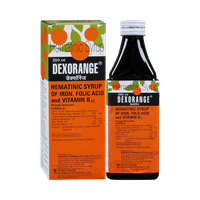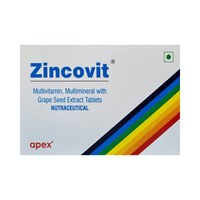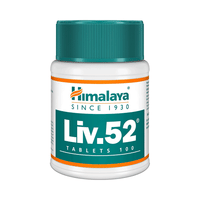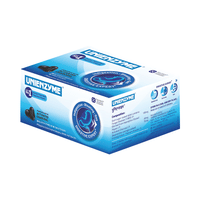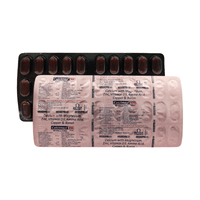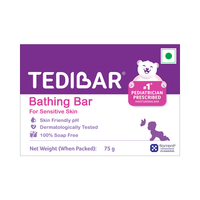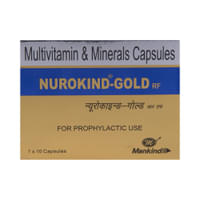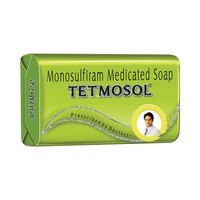food interaction for Eye Cool
alcohol interaction for Eye Cool
pregnancy interaction for Eye Cool
lactation interaction for Eye Cool
food
alcohol
pregnancy
lactation
No interaction found/established
No interaction found/established
Information regarding the use of Eye Cool Eye Drop during pregnancy is not available. Please consult your doctor.
CONSULT YOUR DOCTOR
Information regarding the use of Eye Cool Eye Drop during breastfeeding is not available. Please consult your doctor.
CONSULT YOUR DOCTOR
SALT INFORMATION FOR Eye Cool
Chlorpheniramine Maleate(0.01% w/v)
Uses
Chlorpheniramine Maleate is used in the treatment of allergic conditions, vertigo, appetite stimulant, morning sickness and motion sickness.
How it works
Chlorpheniramine Maleate is an antiallergic medication. When your body is exposed to an allergen (pollen, animal dander, house dust etc.), it produces a chemical called histamine. This causes watery eyes, runny or blocked nose, sneezing, skin rashes, itching etc. Chlorpheniramine Maleate works by blocking the action of histamine, thereby relieving these symptoms.
Common side effects
Dryness in mouth, Sleepiness, Nausea, Headache, Sedation, Difficulty in paying attention, Impaired coordination, Dizziness, Blurred vision, Fatigue
Camphor(0.01% w/v)
Uses
How it works
Camphor belongs to the class of medicines called rubefacients/antitussives. When applied to the skin, it increases blood flow and local temperature of the affected area which suppresses and temporarily relieves pain sensations. It also eases cough, nasal/throat irritation by moistening air passages when used along with steam.
Common side effects
Skin irritation, Hypersensitivity, Irritation of ear, Allergic skin rash
Menthol(0.005% w/v)
Uses
How it works
Menthol works by producing a mild anesthetic action causing numbness and a cooling sensation in the area of application.
Common side effects
Phenylephrine(0.012% w/v)
Uses
Phenylephrine is used in nasal congestion, common cold, uveitis, pupil dilation, conjunctivitis and eye Irritation.
How it works
Phenylephrine is a decongestant. It works by narrowing the small blood vessels which provides temporary relief from inflammation (redness and swelling) and discomfort.
Common side effects
Nausea, Vomiting, Headache, High blood pressure, Arrhythmia (irregular heartbeats), Blurred vision, Breathlessness, Itching, Restlessness, Reflex bradycardia, Excitation, Epigastric pain, Neck pain, Tremors, Hypertensive crisis, Eye pain, Stinging in the eyes, Photophobia, Conjunctival sensitivity, Preterm and low birth weight infants, Fainting, Myocardial infarction, Subarachnoid hemorrhage
Naphazoline(0.05% w/v)
Uses
Naphazoline is used in nasal congestion, uveitis, pupil dilation, conjunctivitis and eye Irritation. It soothes eyes which have been irritated by dusty atmospheres, wind, swimming, smoke, air pollutants, or close work such as reading and computer use.
How it works
Naphazoline narrows the blood vessels in the eye, thereby reducing redness and swelling.
Common side effects
Dilatation of pupil, Headache, Dizziness, Blurred vision, Increased intraocular pressure, Weakness, Arrhythmia (irregular heartbeats), Nausea, High blood pressure, Eye redness, Eye irritation, Eye discomfort, Punctate keratitis, Lacrimation (flow of tears), Sweating, Nervousness, Drowsiness, Increased glucose level in blood
SUBSTITUTES FOR Eye Cool
No substitutes foundExpert advice FOR Eye Cool
- Avoid driving or operating dangerous machinery as it may decrease alertness.
- Avoid consuming alcohol when taking the Chlorpheniramine Maleate, as it may cause excessive sleepiness or drowsiness.
- Avoid driving or operating dangerous machinery as it may decrease alertness.
- Avoid consuming alcohol when taking the Chlorpheniramine Maleate, as it may cause excessive sleepiness or drowsiness.
Frequently asked questions FOR Eye Cool
Chlorpheniramine Maleate
Q. Does chlorpheniramine or chlorpheniramine maleate cause increase in blood pressure/ drowsy/non drowsy/sedating/get you high/keep you awake/sleepiness/make you tired/weight gain?
Chlorpheniramine causing these side effects is common or rare. Always consult your doctor, if you experience any of these side effects
Q. Is chlorpheniramine like Benadryl?
No, chlorpheniramine is different from Benadryl
Q. Is chlorpheniramine prescription?
Yes, it is available with doctor’s prescription only
Camphor
Q. Is Camphor edible?
Edible Camphor is different from the chemically made Camphor. Camphor used in cooking is ‘edible Camphor'
Q. Is Camphor poisonous?
Yes, if Camphor is applied to broken skin, it can enter the body quickly and reach concentrations that are high enough to cause poisoning. Overdose of Camphor can result in poisoning.
Q. Is Camphor saturated or unsaturated?
Camphor is unsaturated
Menthol
Phenylephrine
Q. Is it safe to use Phenylephrine?
Yes, Phenylephrine is safe for most of the patients. However, in some patients, it may cause side effects like nausea, vomiting, headache, fatigue, dizziness, dryness in the mouth, sleepiness and allergic reaction. If you experience any persistent problem while taking this medication, inform your doctor as soon as possible.
Q. Can the use of Phenylephrine cause dizziness?
Yes, the use of Phenylephrine can cause dizziness (feeling faint, weak, unsteady or lightheaded) in some patients. If you feel dizzy or lightheaded, it is better to rest for sometime and resume once you feel better. Do not drive or use any machines. Consult your doctor if the side effect persist or worsen.
Q. Can the use of Phenylephrine cause nausea and vomiting?
Yes, the use of Phenylephrine can cause nausea and vomiting. To avoid nausea one can take Phenylephrine with milk, food or with antacids. If vomiting occurs, drink plenty of water or other fluids. Talk to your doctor if vomiting persists. You should let your doctor know if you are unable to drink water and there are signs of dehydration, like dark colored and strong-smelling urine and a low frequency of urination. Avoid taking fatty or fried foods along with this medication. Do not take any other medicine without consulting your doctor.
Naphazoline
Q. Is Naphazoline safe?
Naphazoline is safe if taken at prescribed dose and duration as advised by your doctor.













